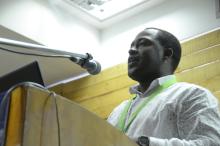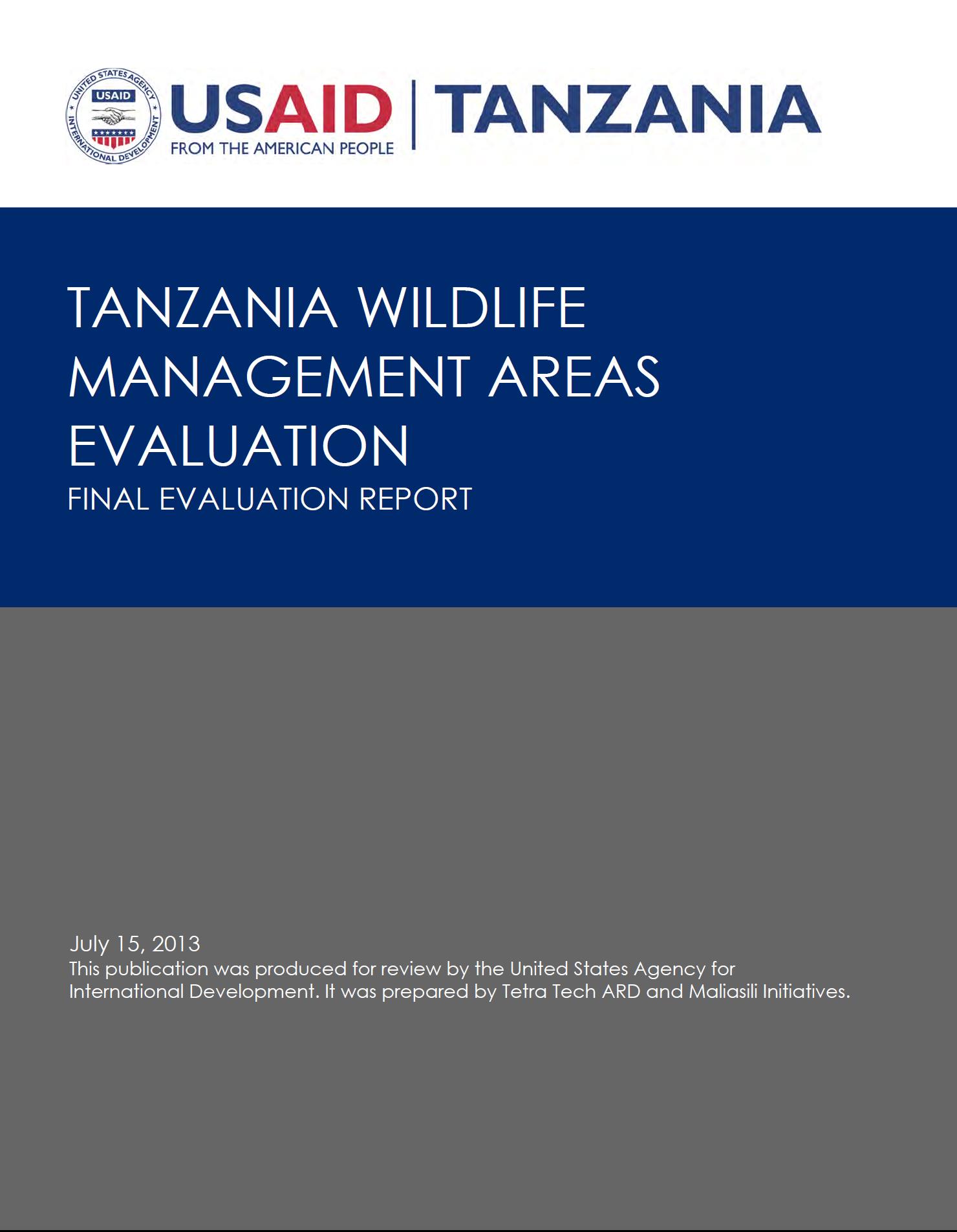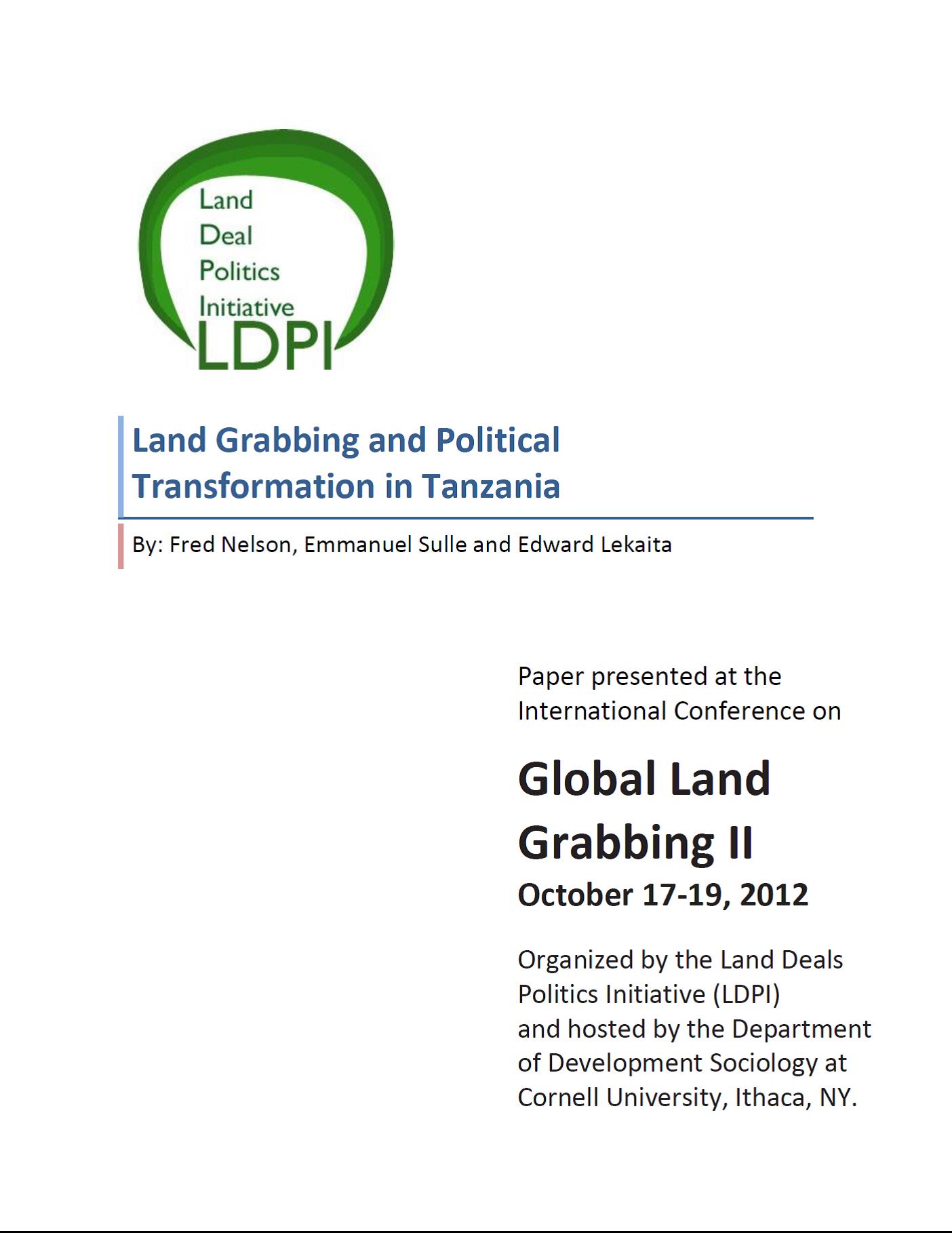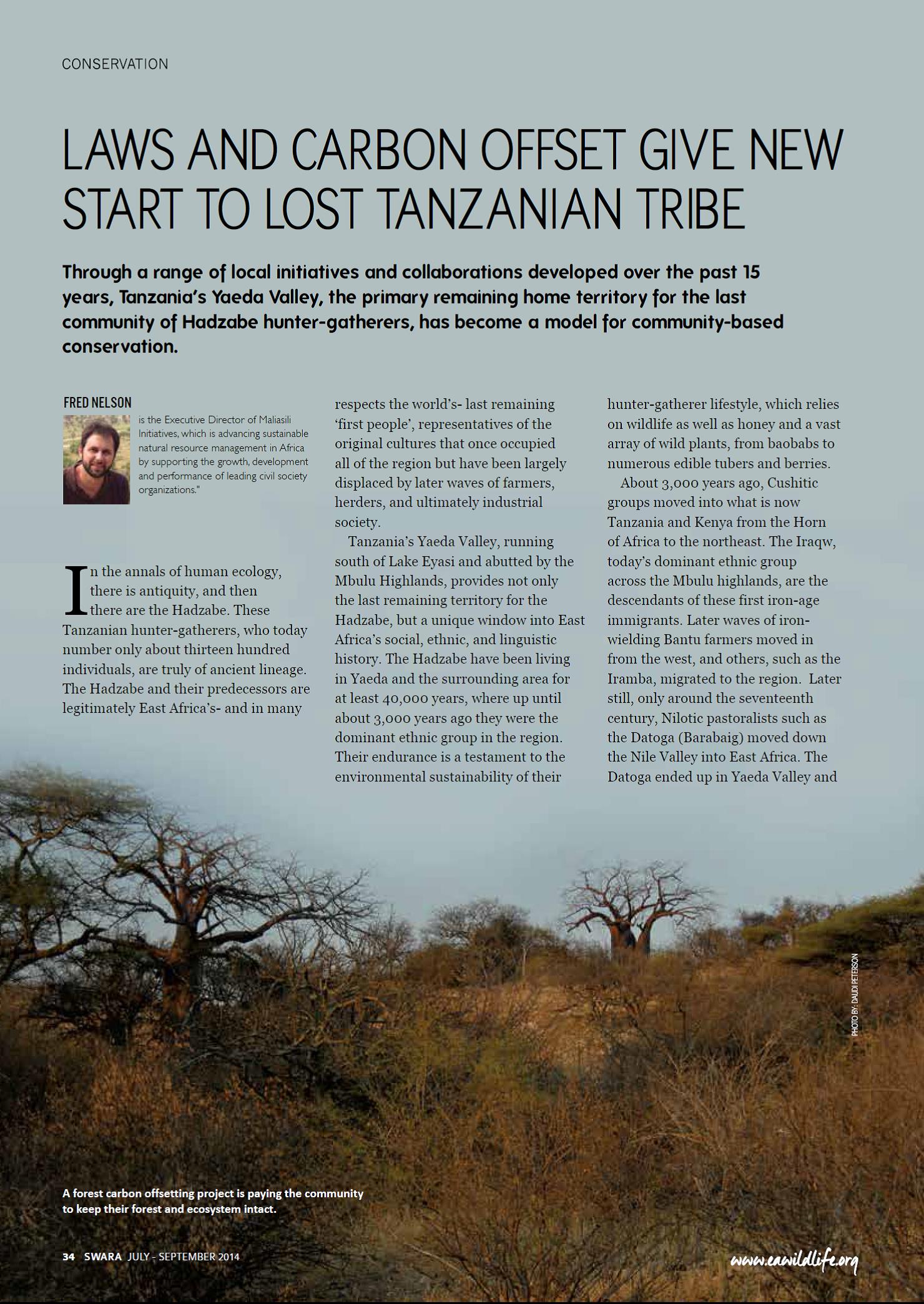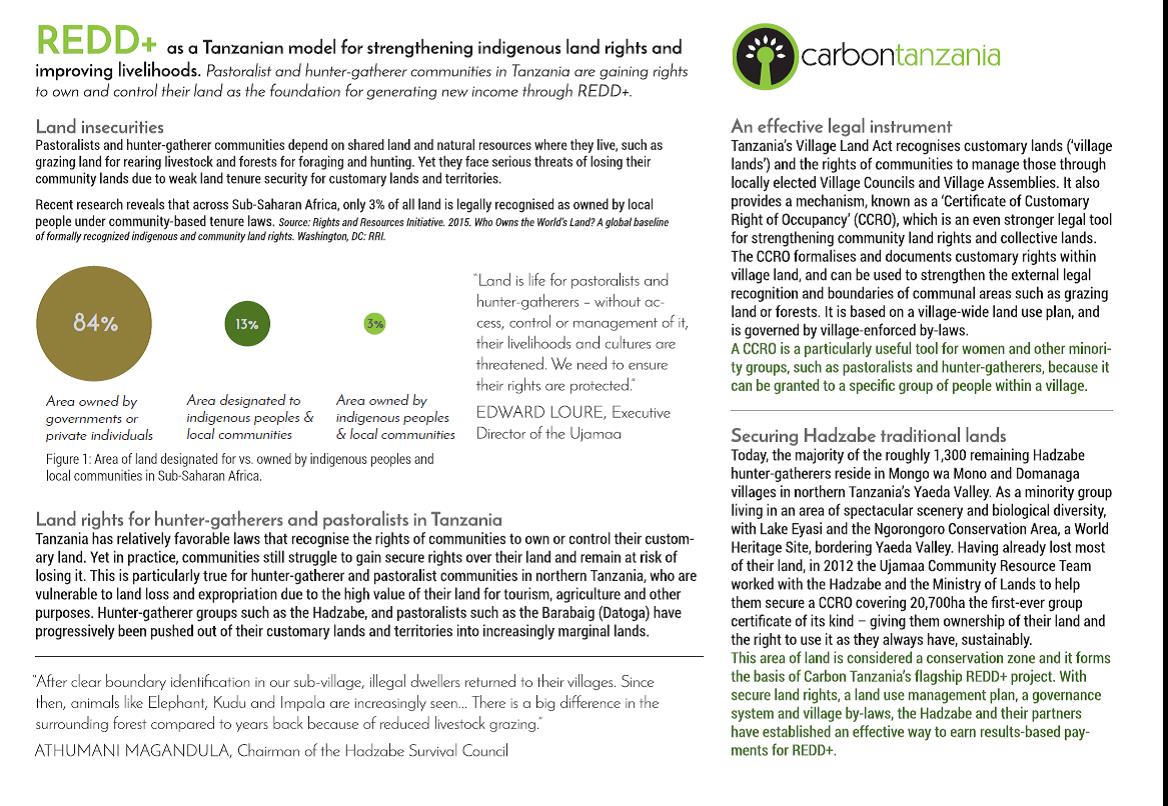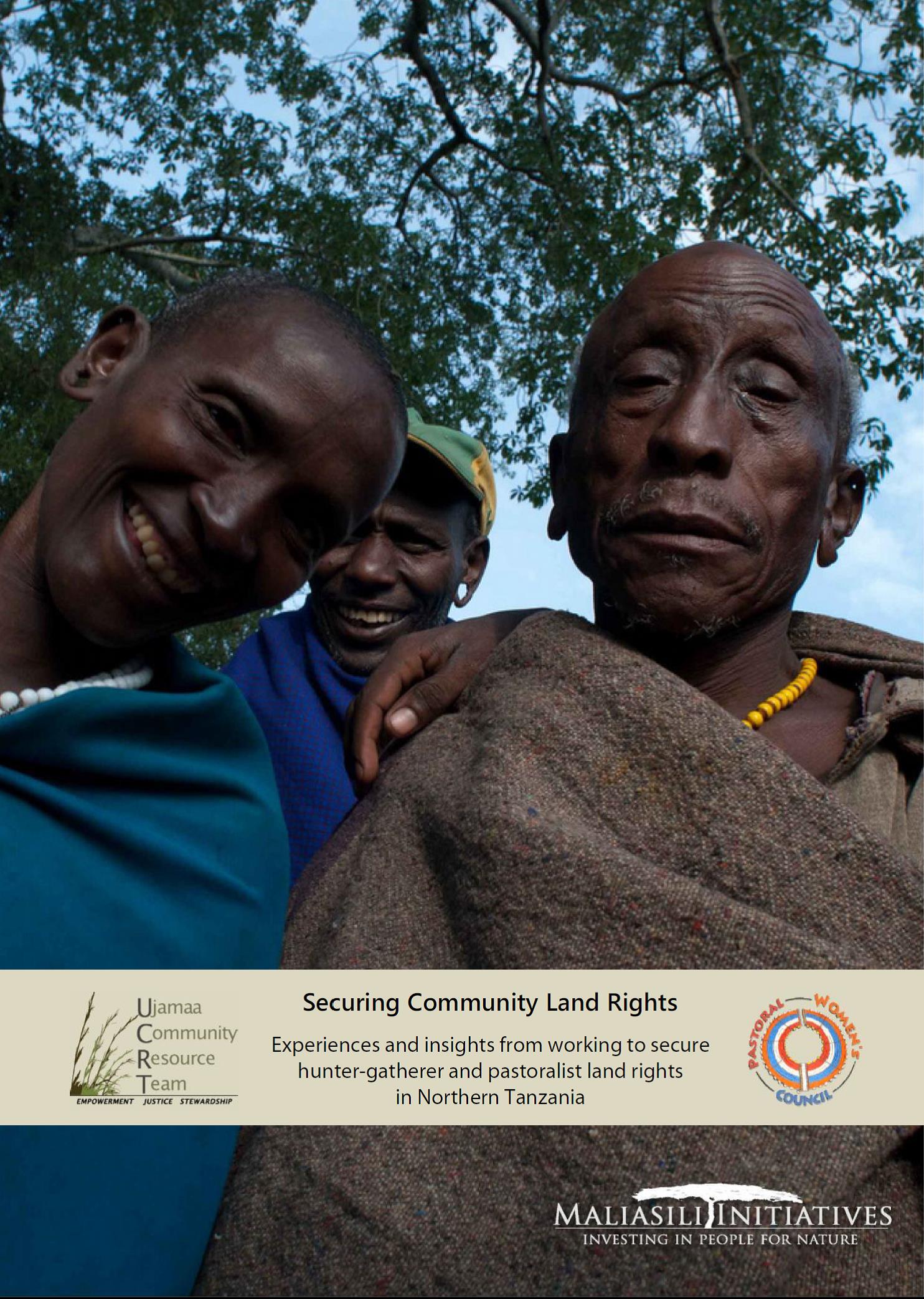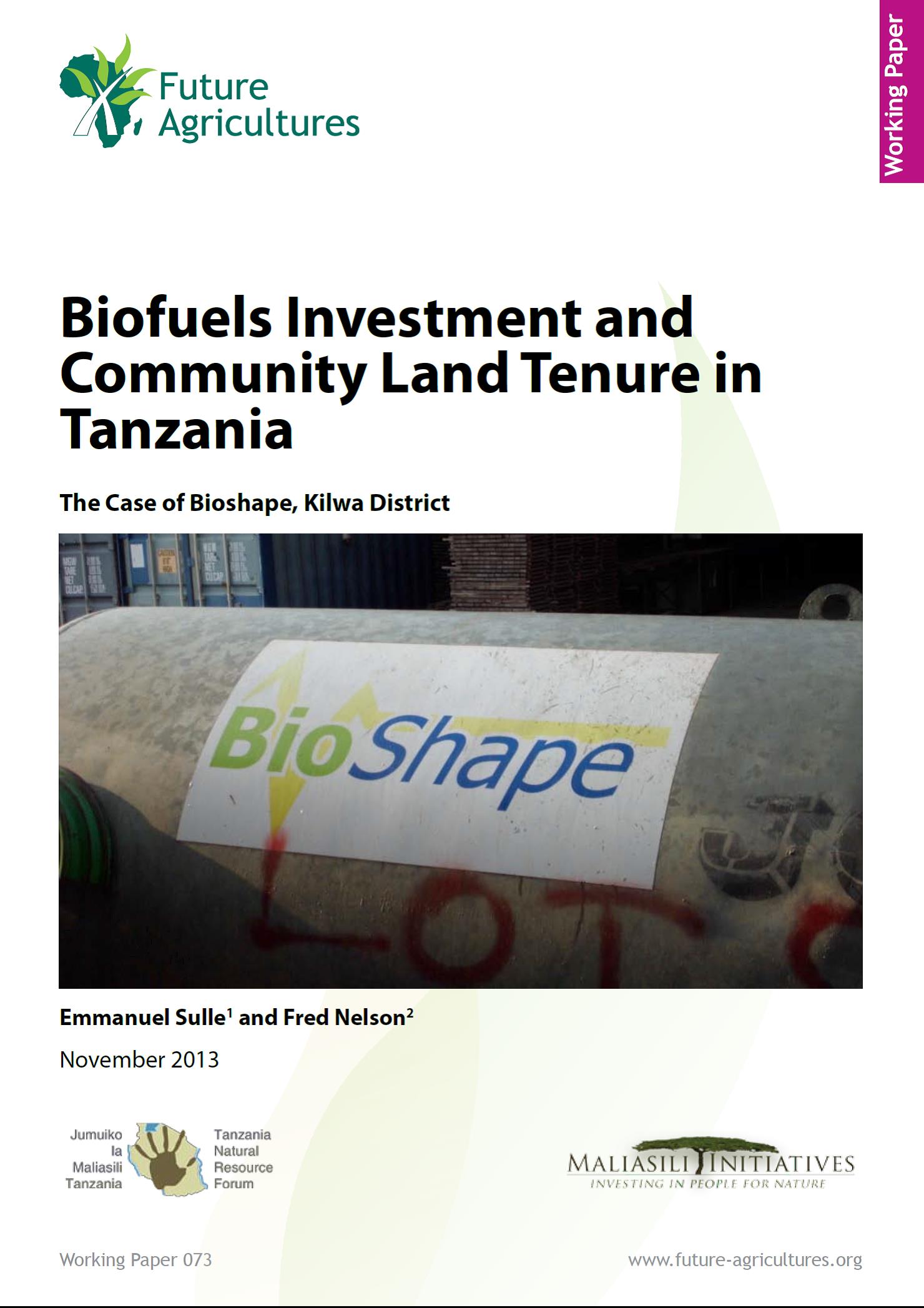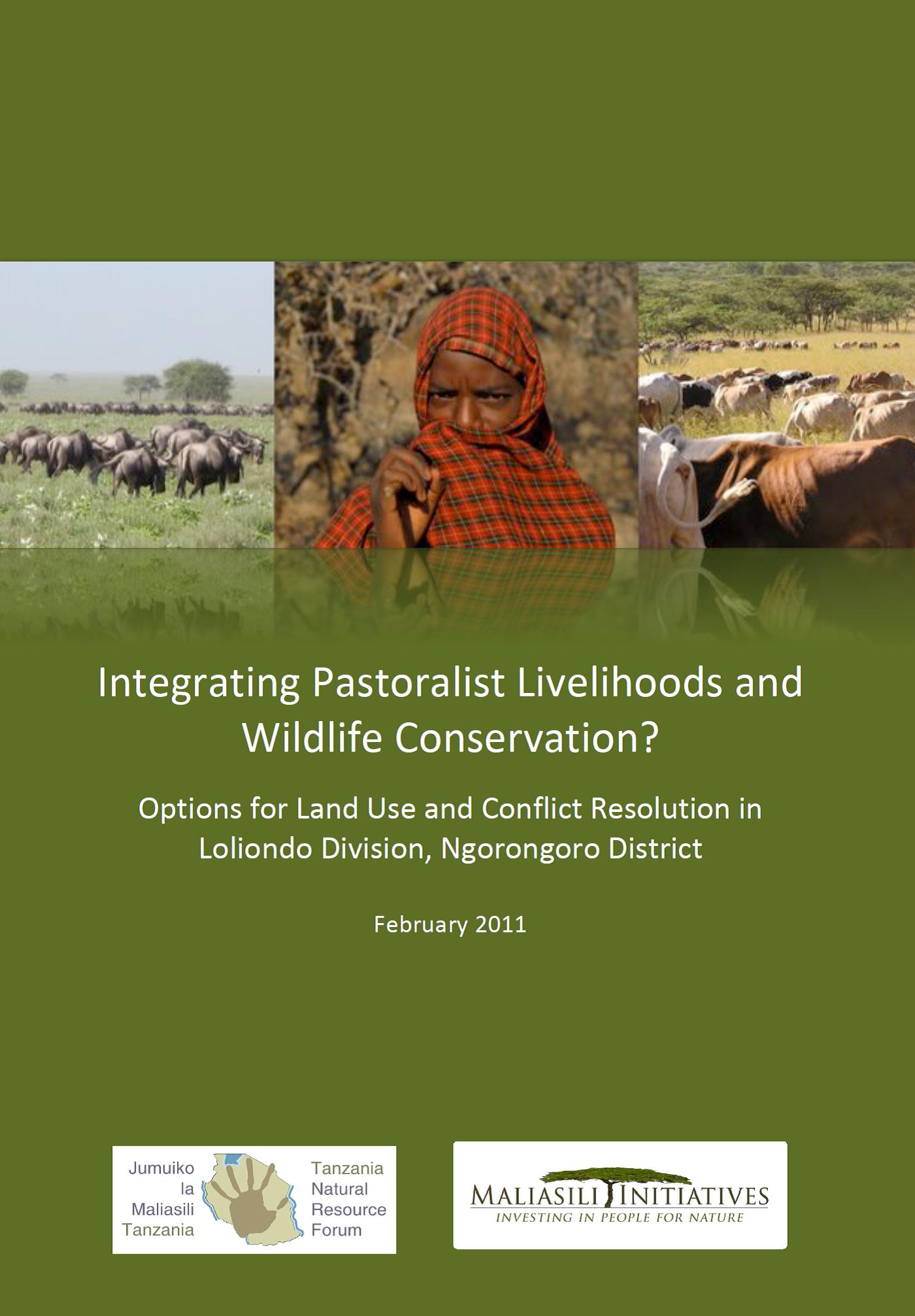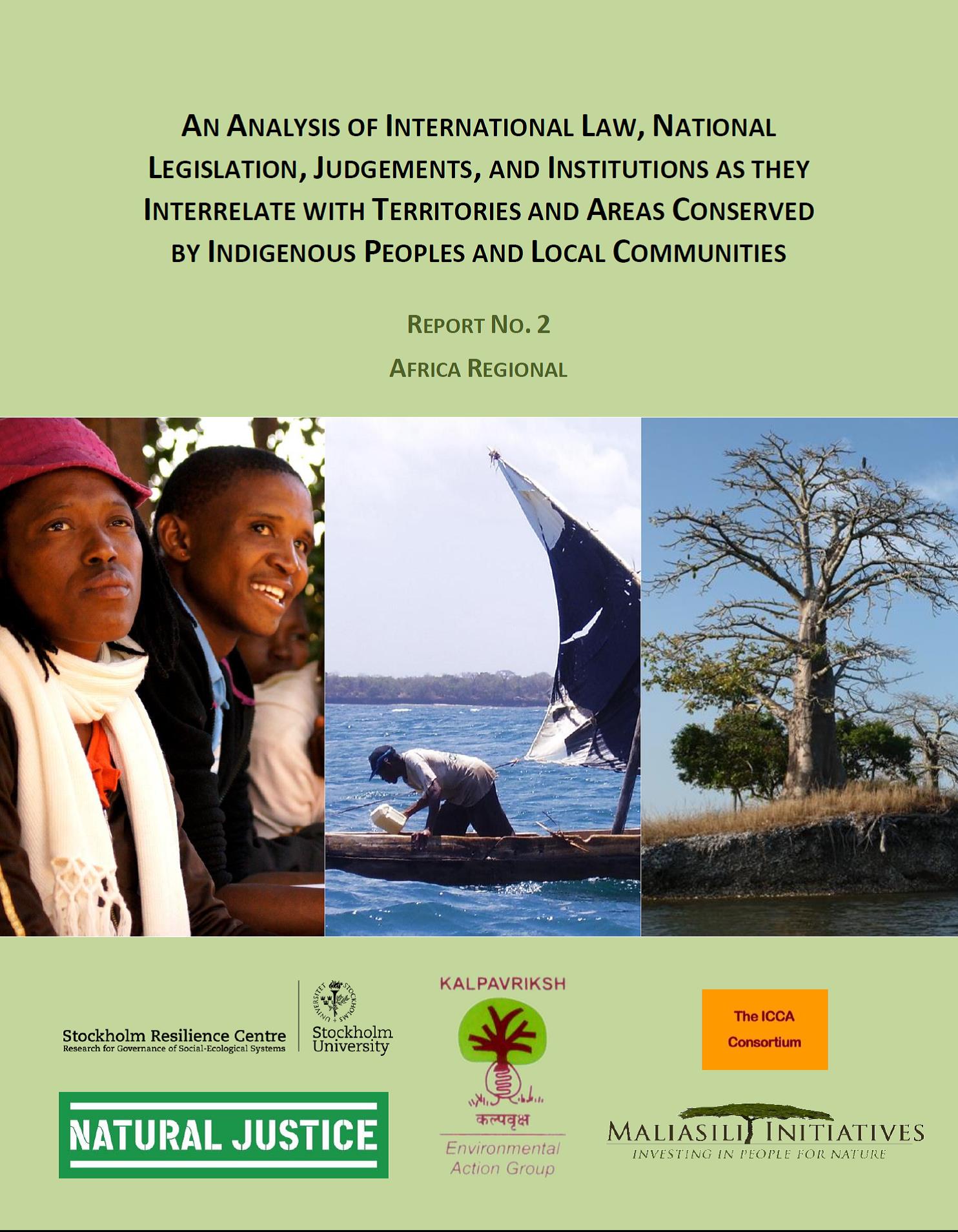Godfrey Eliseus Massay is a lawyer and land tenure specialist.He has eight years of experience working on land rights and in the natural resource sector in Tanzania, and has written and published numerous articles on land rights in both national and international academic journals.
Details
Location
Contributions
Displaying 131 - 140 of 218Tanzania Wildlife Management Areas Evaluation
The increasing importance of the Wildlife Management Areas (WMAs) in Tanzania, where 17 WMAs are now functioning and 22 others are in various stages of development, begs the question of what successes have been achieved and what challenges remain to be addressed if this Community-Based Conservation model is to be sustained and even scaled up. There has not been a country-wide evaluation of WMAs since the pilot-phase evaluation in 2007 at a time when most WMAs were too new to yield firm projections for the long term.
Land Grabbing and Political Transformation in Tanzania
Like many of its neighbors, Tanzania is experiencing a well-documented surge of land grabbing related to investments in industries such as agriculture, biofuels, tourism, hunting, and forestry. Land grabbing in Tanzania is best understood and analyzed as both a symptom of and contributor towards wider political economic processes of change occurring in Tanzania.
Laws and Carbon Offset Give New Start to Lost Tanzanian Tribe
Through a range of local initiatives and collaborations developed over the past 15 years, Tanzania’s Yaeda Valley, the primary remaining home territory for the last community of Hadzabe hunter-gatherers, has become a model for community-based conservation.
REDD+ as a Tanzanian Model for Strengthened Indigenous Land Rights
Pastoralist and hunter-gatherer communities in Tanzania are gaining rights to own and control their land as the foundation for generating new income through REDD+
‘Land grabbing’: is conservation part of the problem or the solution?
Large-scale land acquisitions are increasing in pace and scale, in particular across parts of Africa, Asia and Latin America. Weak governance and poor land use planning mean that commercial ‘land grabs’ often damage biodiversity as well as dispossessing people from customary rights and livelihoods. Land can also be ‘grabbed’ for ‘green’ purposes, triggering conflicts that undermine potential synergies. Expanded state protected areas, land for carbon offset markets and REDD, and for private conservation projects all potentially conflict with community rights.
Securing Community Land Rights
In this publication two pioneering grassroots organisations from northern Tanzania examine and present their experiences and insights from their long-term work to secure the land rights of hunter-gatherer and pastoral communities. The case studies were presented at a one-day learning event held on 5th October 2012, when Pastoral Women’s Council (PWC) and Ujamaa Community Resource Team (UCRT) joined together to share and reflect on their work to secure land rights, to learn from each other, and to identify ways to build on their achievements moving forward.
Biofuels Investment and Community Land Tenure in Tanzania
One of the most wellknown biofuel investments was that of Bioshape, which acquired approximately 34,000 ha in Kilwa District for the cultivation of jatropha.
Integrating Pastoralist Livelihoods and Wildlife Conservation?
This report provides an overview of the conflict in Loliondo, reviewing historical information, current land uses and tenure arrangements.
An Analysis of International Law, National Legislation, Judgements, and Institutions as they Interrelate with Territories and Areas Conserved by Indigenous Peoples and Local Communities
Across the world, areas with high or important biodiversity are often located within Indigenous peoples’ and local communities’ conserved territories and areas (ICCAs). Traditional and contemporary systems of stewardship embedded within cultural practices enable the conservation, restoration and connectivity of ecosystems, habitats, and specific species in accordance with indigenous and local worldviews. In spite of the benefits ICCAs have for maintaining the integrity of ecosystems, cultures and human wellbeing, they are under increasing threat.
An Analysis of International Law, National Legislation, Judgements, and Institutions as they Interrelate with Territories and Areas Conserved by Indigenous Peoples and Local Communities
This report provides a synthesis of three country level case studies (Namibia, Senegal, Kenya) carried out in African countries as a part of the overall legal review of Indigenous People’s and Community Conserved Territories and Areas (ICCAs). This regional synthesis report also incorporates information and material from other African countries’ experiences with ICCAs, as documented in a range of other studies and publications.

